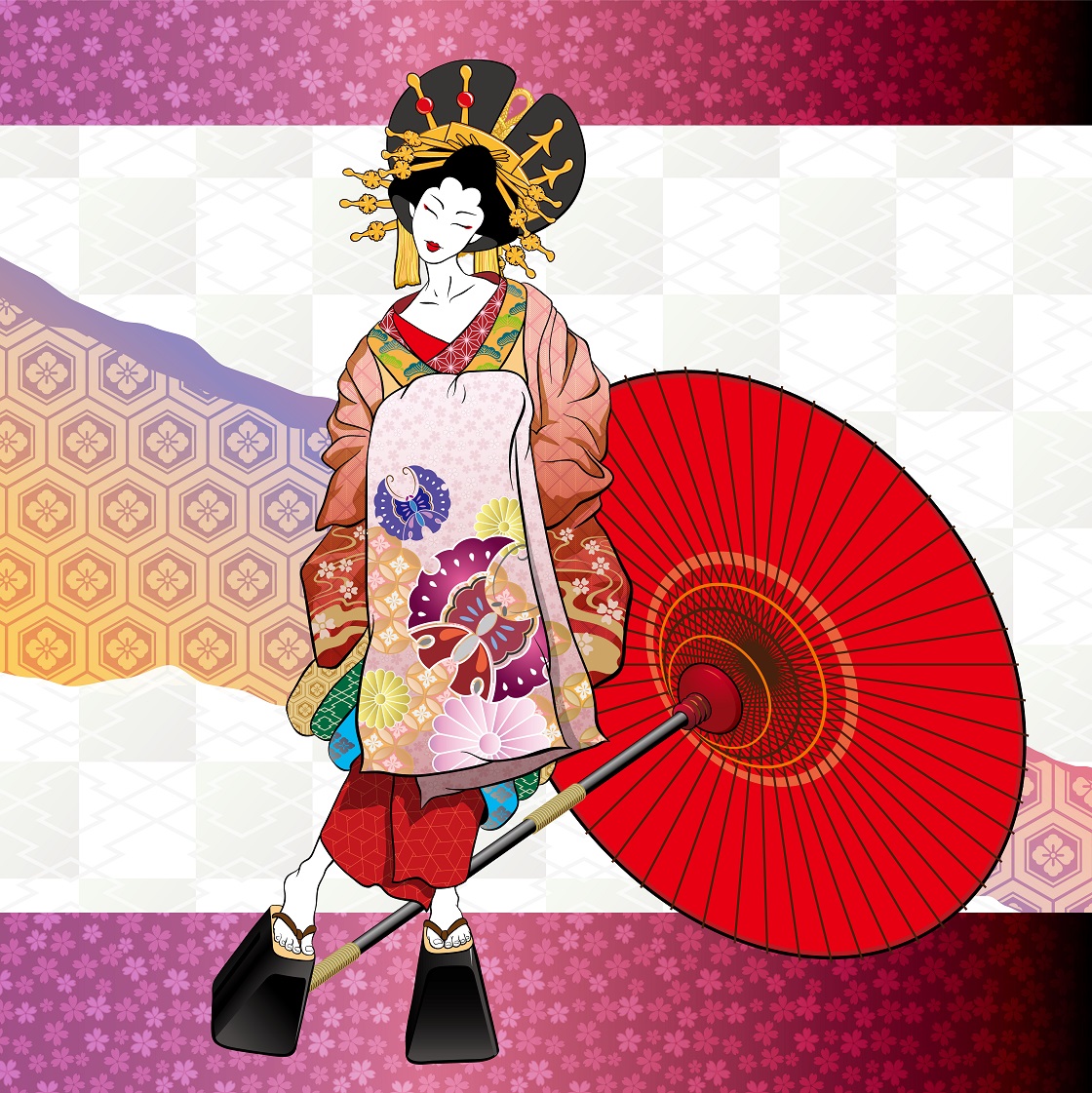Geisha
A lady who professionally provides entertainment and lighthearted company at a feast.
Around the end of the seventeenth century, geisha girls came on the scene, replacing an first-class of “courtesans” who were skillful in such arts as music and dancing. Geisha no longer carries the sexual implication which is often suggested by the English use of the word.
Some geisha girls live in okiya (a geisha boarding house) whose landlady acts as manager and sends them around to Japanese-style hotels and restaurants where drinking feasts are held. Others live in their own houses and practice their business independently.
Dressed in kimono and often with their hair done in the old Japanese style, they entertain a group of men by playing the shamisen (traditional musical instrument), singing traditional songs, dancing a classical dance, serving food and drinks, or through lighthearted talk with a sympathetic smile. Some of them, especially in urban areas, are highly educated and are intellectually stimulating enough to entertain elite businessmen.













New comment